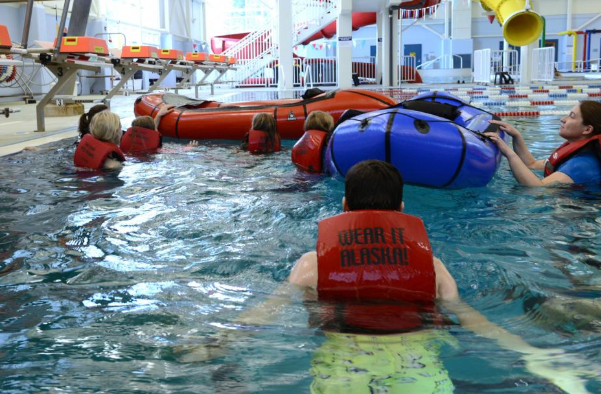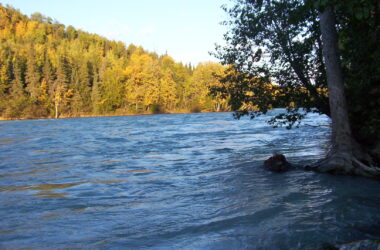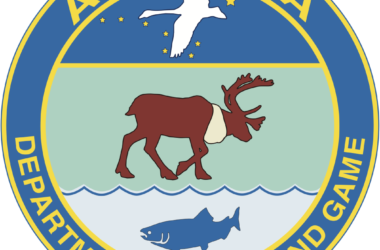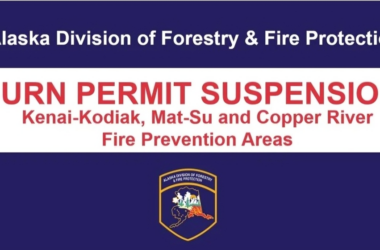In advance of this Memorial Day weekend, personnel with the U.S. Coast Guard across Alaska are encouraging and promoting safe boating practices during National Safe Boating Week, which is a campaign effort involving public outreach held annually during the week leading up to the holiday weekend. The campaign is designed to help reduce boating fatalities and accidents by generating awareness on the waterways.

U.S. Coast Guard District 17
Michael Folkerts, the recreational boating safety specialist for the 17th Coast Guard District said:
“As people get out and enjoy the Alaskan Waters, we want them to do so safely so they can come home to their loved ones. The cold waters here can be unforgiving, and we need to be aware of the dangers and know what to do in the event of an emergency.”
Boating safety tips to keep you safe on the water this summer include:
- Wear a life jacket; they save lives. In Alaska, boaters are required to have one Coast Guard-approved life jacket for each person aboard their vessel, and they must be in serviceable condition. Persons under 13 years old are required by law to wear a life jacket at all times when in an open boat, on the deck of a boat, or when water skiing.
- Educate yourself through knowledge and skills-based training. The Coast Guard Auxiliary Boating Safety Education courses offer both virtual and in-person education classes.
- Wear your engine cut off switch link. The new law went into effect on April 1, 2021, requiring recreational boats to use an engine cut-off switch (ECOS) and associated ECOS link (ECOSL). An ECOS is an emergency ignition cut-off device that shuts down the engine if the operator is ejected from the vessel or falls overboard. This law applies to any boats less than 26 feet in length that generate more than 115 pounds of static thrust (approximately 3 horsepower) and were built beginning in January 2020. It also requires operators to use the ECOSL while navigating on plane or above displacement speed.
- Boat sober! Abstain from operating a vessel while under the influence of alcohol or drugs. Alcohol consumption remains the single-greatest contributing factor in recreational boating fatalities.
- Check all required safety equipment to be sure it is in good working order. Vessel safety checks by the Coast Guard Auxiliary are free. Trained examiners help boaters review their equipment and give advice about how to improve safety.
- Check the weather. Be sure to look at the immediate weather forecast as well as the extended forecast; weather can change in Alaska in a matter of hours. Be prepared for it. The National Weather Service offers local and statewide current and extended marine weather forecasts on their website, which are broadcast on VHF marine-band radios.
- Take multiple forms of communication devices and extra batteries and chargers. Always remember, VHF-FM radio is the primary communications network for the maritime boating community. Enabling the Digital Selective Calling features on your VHF-FM marine radio can broadcast your location and information to every boat within range in an emergency. Also consider a personal emergency beacon, and ensure it is registered with the National Oceanic and Atmospheric Administration.
For more information on boating responsibly, click here.






